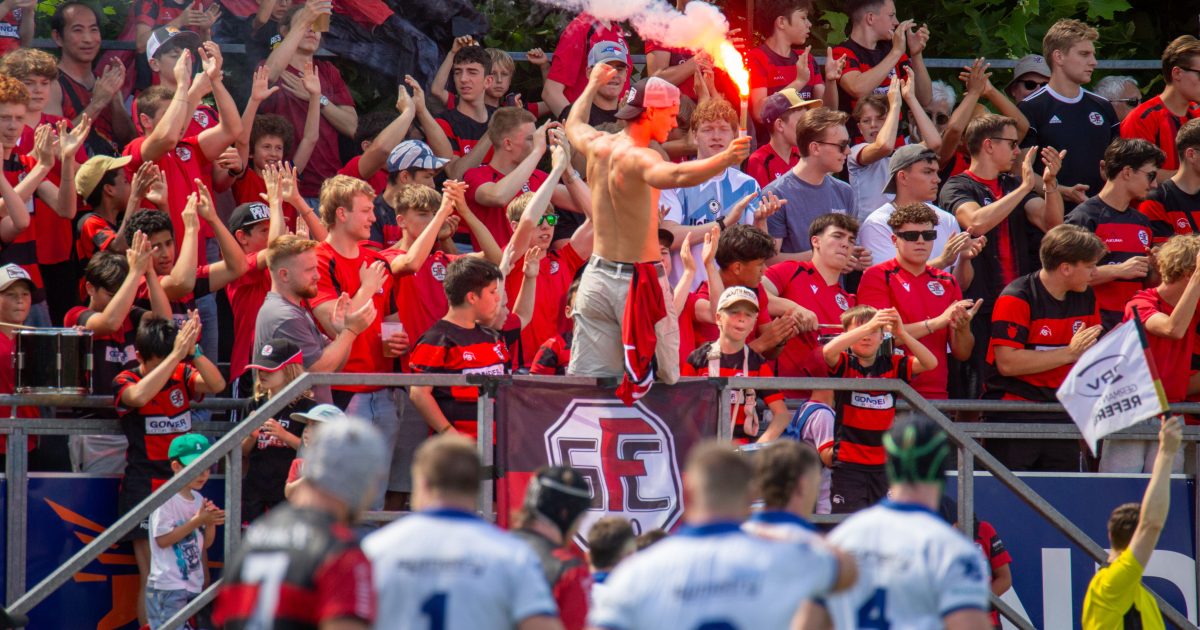The German Bundesliga kicks off this weekend under a new streamlined format, featuring a single 10-team national top league and two leagues at the level below, split into north and south.
Previously, the top division in German club rugby employed a two-conference model, with eight teams in each of the South and North divisions. The level below was divided into four regions: North, East, South, and West.
Each club is guaranteed 18 games rather than 14. The top two teams in Bundesliga 1 will compete in a Grand Final at a venue yet to be decided, while the team sitting at the bottom of Bundesliga 1 will be automatically relegated and replaced by the Bundesliga 2 champions.
Meanwhile, the ninth-place team in Bundesliga 1 will face a promotion-relegation play-off against the Bundesliga 2 runners-up.
The changes are the brainchild of Niko Colic, the Bundesliga’s new Commissioner, who’d grown frustrated by the old system in his time as player and then coach of second division outfit, BSV 1892 Rugby.
Colic, a former Croatian international, recognised the need to streamline the elite end of the club game in Germany to drive up standards and improve the product on the pitch.
 The German Rugby Bundesliga trophy, dented from being dropped on the ground during various title-winning celebrations. Photo: Udo Herrmann / www.herrmann-agenturfotografie.de/
The German Rugby Bundesliga trophy, dented from being dropped on the ground during various title-winning celebrations. Photo: Udo Herrmann / www.herrmann-agenturfotografie.de/
The old format had been beset with problems, chief amongst them the withdrawal of clubs, blowout scorelines and a disparity in the standard of rugby being played in the south compared to the north. And the Bundesliga clubs backed Colic’s vision by voting through the changes.
“There are 140 clubs in the whole system, and 42 of them were in the top leagues, which didn’t make much sense, so something had to change in my mind,” said Colic.
“There was a really big top and no foundation. We had too many teams in the Bundesliga that could play at that level without adding much in terms of performance. Everybody who wanted to play in the Bundesliga could play in the Bundesliga.
“So, we have made the top smaller to get closer results, better games and more competition.”
SC Frankfurt 1880 have succeeded Heidelberger RK 1870 as the powerhouses of German club rugby, winning the last four titles. They begin their latest title defence at home to Hannover 78.
It is one of five matches scheduled for this Saturday, with last season’s beaten finalists TSV Handschuhsheim away to Berliner RC.
Nine-time champions Heidelberger RK 1872 are at home to SC Neuenheim, while München RFC hosts Rugby Club Luxembourg, and RG Heidelberg travel to Hannover to play SC Germania List 1.
Another significant change, in addition to the league’s structure, concerns the composition of each squad.
Conscious of the need to bring through homegrown German talent, to ultimately grow the player pool available to the national team, a points-scoring system has been introduced around recruitment.
 Reigning Bundesliga 1 champions, SC 1880 Frankfurt, celebrated victory in last year’s final. Photo: Udo Herrmann / www.herrmann-agenturfotografie.de/
Reigning Bundesliga 1 champions, SC 1880 Frankfurt, celebrated victory in last year’s final. Photo: Udo Herrmann / www.herrmann-agenturfotografie.de/
Clubs can ‘spend’ 20 points on a matchday squad. Players developed in the club’s youth academy are worth minus 1pt, players developed at another German club are zero pts, German-eligible players whose youth training was abroad cost 1 point, and any player who doesn’t meet those criteria is 2pts.
Colic, an engineer by profession, hopes that all the measures that have been introduced will reinvigorate the Bundesliga.
“There are a lot of reasons why we are where we are.
“I think the Bundesliga was like an unwanted child in Germany.
“It has something to do with the financing of sports in Germany. Sevens is in the Olympics, so it is getting money from the government, and it is a pretty attractive sport if you want to develop players.
“So, a lot of development went into our sevens high-performance programme and the Bundesliga, without really knowing it, I would guess, hasn’t had any money put into it in the last 10 years to develop it.”
The Bundesliga currently doesn’t have a sponsor, but steps are being taken to make the league more commercially attractive.
A new website has been launched, a social media strategy is being put in place, and every match this season will be filmed, all helping to increase exposure.

